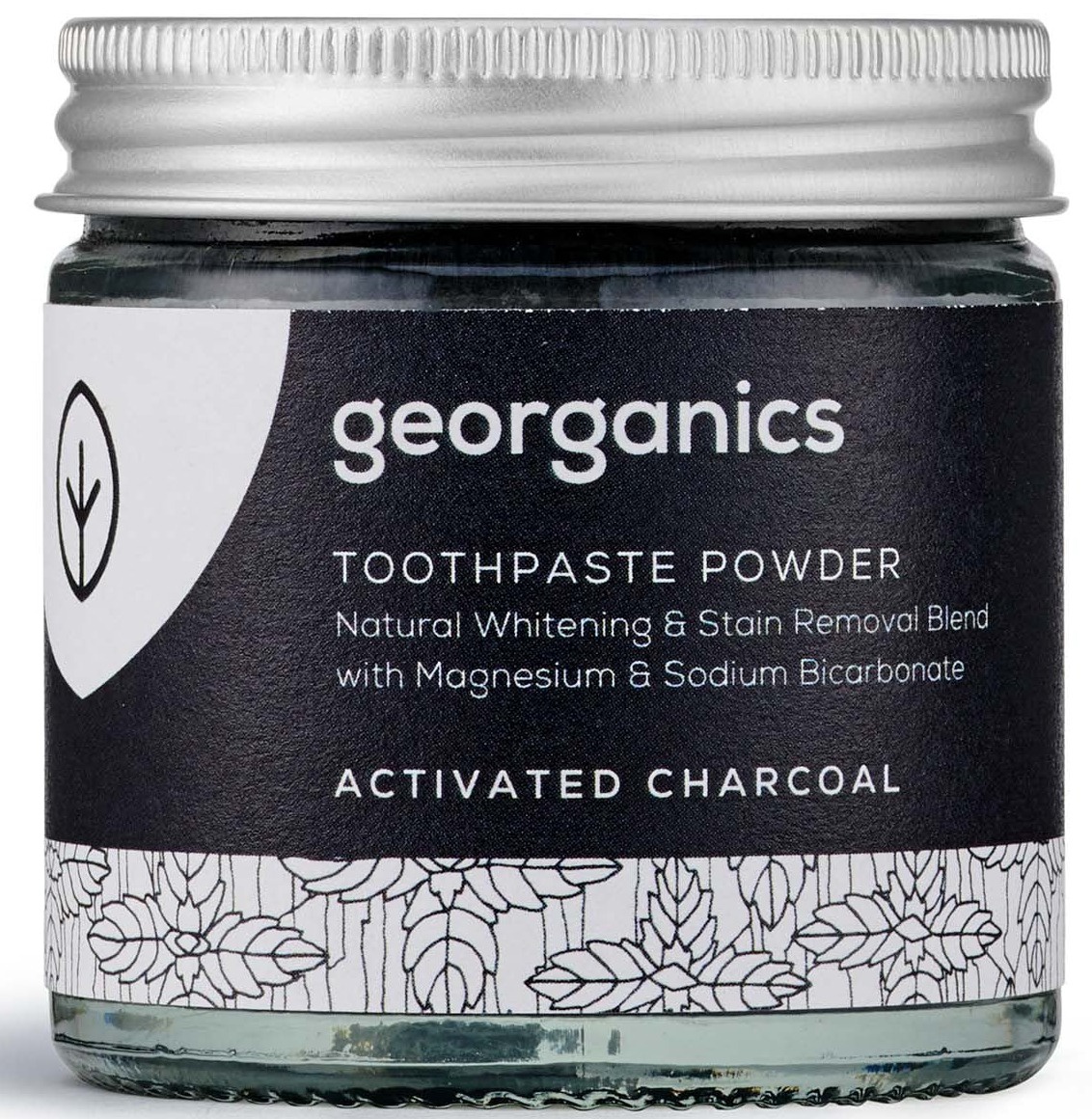
Mineral Toothpaste Powder - Activated Charcoal
Highlights
Skim through
| Ingredient name | what-it-does | irr., com. | ID-Rating |
|---|---|---|---|
| Sodium Bicarbonate | abrasive/scrub, buffering | ||
| Charcoal Powder | abrasive/scrub | ||
| Calcium Powder | abrasive/scrub, buffering | ||
| Diatomaceous Earth | abrasive/scrub | ||
| Magnesium Carbonate | |||
| Dicalcium Phosphate^ | abrasive/scrub | ||
| Tartaric Acid^ | buffering, exfoliant | ||
| Peppermint Oil*^ | perfuming | icky | |
| Vitamin E^ | antioxidant | 0-3, 0-3 | goodie |
| Limonene*^ | perfuming, solvent | icky |
Georganics Mineral Toothpaste Powder - Activated CharcoalIngredients explained






The essential oil coming from steam distillation of freshly harvested, flowering peppermint sprigs. Its major component is menthol that gives the oil its well-known refreshing and cooling properties. Peppermint oil is traditionally used as an inhalant for cold and coughs and there is also some clinical data validating its use against headaches by rubbing a peppermint oil cream on the forehead.
As for skincare, other than the nice grassy-minty smell and the refreshing sensations, we cannot write good things. It can be a skin irritant, so much so that it is a well-known counterirritant for muscle pains creating mild surface irritation to make things better in the deeper layers. But for everyday skincare, counterirritation is not something you wanna do, so we think that peppermint oil is better to avoid, especially if your skin is sensitive.
- Primary fat-soluble antioxidant in our skin
- Significant photoprotection against UVB rays
- Vit C + Vit E work in synergy and provide great photoprotection
- Has emollient properties
- Easy to formulate, stable and relatively inexpensive
A super common and cheap fragrance ingredient. It's in many plants, e.g. rosemary, eucalyptus, lavender, lemongrass, peppermint and it's the main component (about 50-90%) of the peel oil of citrus fruits.
It does smell nice but the problem is that it oxidizes on air exposure and the resulting stuff is not good for the skin. Oxidized limonene can cause allergic contact dermatitis and counts as a frequent skin sensitizer.
Limonene's nr1 function is definitely being a fragrance component, but there are several studies showing that it's also a penetration enhancer, mainly for oil-loving components.
All in all, limonene has some pros and cons, but - especially if your skin is sensitive - the cons probably outweigh the pros.
You may also want to take a look at...
| what‑it‑does | abrasive/scrub | buffering |
| what‑it‑does | abrasive/scrub |
| what‑it‑does | abrasive/scrub | buffering |
| what‑it‑does | abrasive/scrub |
| what‑it‑does | abrasive/scrub |
| what‑it‑does | buffering | exfoliant |
| what‑it‑does | perfuming |
| what‑it‑does | antioxidant |
| irritancy, com. | 0-3, 0-3 |
| what‑it‑does | perfuming | solvent |





